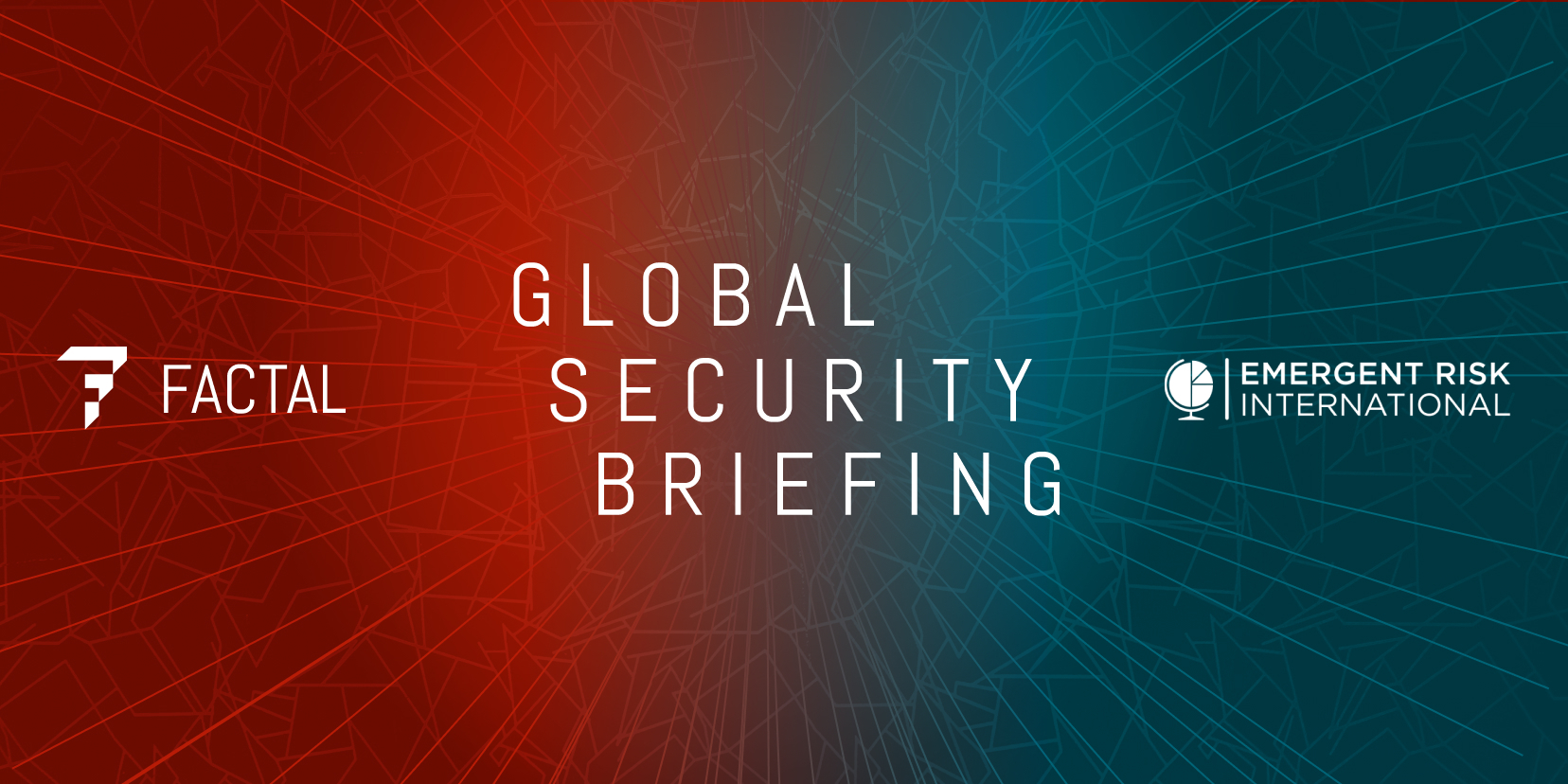As the first COVID cases appeared in the US, Factal and Emergent Risk International joined forces to hold a webinar exploring the virus and its impact. Now four years later, the Global Security Briefing has expanded into the largest virtual event in the security industry, attracting a who’s-who of professionals every two weeks. An hour-long presentation and Q&A, the Briefing tackles the most pressing security risks and geopolitical shifts.
“Looking back at that first webinar, we had a handful of cases here in Washington State,” said Cory Bergman, cofounder of the Seattle-based Factal and co-host of the Briefing. “While it was business as usual in the rest of the country, we explained how local health officials expected it was going to get much worse, how supplies were running out, schools were starting to close. That webinar was really formative, and it turned into a regular event.”
As pandemic restrictions began to ease, the hour-long Briefing broadened into a wider range of geopolitical and security topics. Russia’s invasion of Ukraine, AI, climate change and the Israeli-Palestinian conflict are frequent themes. Since most attendees work for Global 1000 companies and humanitarian aid NGOs, the Briefing often focuses on employee and travel safety, supply chain risks, cybersecurity and other operational realities.
“I still can’t believe the briefing is free.”
– Security director
“In those early days, we were often literally updating slides as new information came in and the informal nature of the briefing gave us a way to explore breaking developments from multiple angles,” said Kieran O’Leary, director of analysis at Emergent Risk International and co-host of the Global Security Briefing. “Four years on, that same spirit and the partnership between ERI and Factal keeps on bringing editors and analysts together from around the world to brief on the issues that matter to business.”
That combination of Factal journalists and ERI analysts blends timeliness with a longer outlook in a single presentation. Both teams draw on their own regional experts to provide a realistic, forward-looking assessment. The Briefing takes an objective, risk-based approach, and presenters avoid straying into subjective opinions.
“It really has turned into a community,” Bergman said. “A lot of attendees remember our candid approach to the pandemic, which was a nice contrast to the endless loop of news coverage. We’ve never been afraid to say we don’t know. That has carried through as we tackle other challenging subjects.”
The Global Security Briefing is live every other Thursday, and registered users can access the on-demand recordings and slides after the event. There’s also a podcast version as well as a Linkedin group to discuss upcoming topics.

